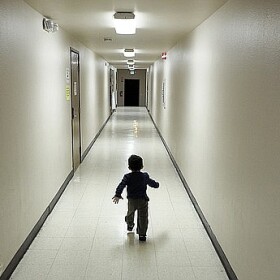On Friday, the city of San Diego is banning all food containers made of plastic foam, commonly referred to as Styrofoam.
This is the second phase of the city's single-use plastics ordinance, which bans the sale and distribution of egg cartons and food containers made in whole or part from polystyrene foam. That includes bowls, plates, trays, cups, lids and other similar items designed for one-time use. Businesses are prohibited from selling the items and restaurants are barred from distributing them.
Tako Factory in the College Area regularly uses plastic foam for takeout orders.
"We use it a lot — about 100 a day," Tako Factory co-owner Hezthevan Garcia said.
Garcia said he pays around 30 cents for each polystyrene container, whereas paper-based containers are almost four times as expensive.
"The paper one of these will run up around $1, $1.20 — way more," he said.
San Diego's ban includes the trays Garcia uses.
"It’s going to affect pricing at the end of the day because we have to charge more to the customers, you know," Garcia said. "Sometimes they get a little upset but we have to go with the times."
RELATED: City Council Approves Ban On Polystyrene Foam
Garcia said he knew about the upcoming ban, but did not know when it was going into effect until KPBS told him.
"From the city, we haven’t heard much about this," Garcia said. "I mean one as a business owner should be up to date. But it would be cool to get a letter."
Tako Factory still has a number of foam boxes and plans to switch to paper in the next couple of weeks. Garcia said the change is just the cost of doing business.
"I’m sure there’s going to be more ordinance to try and make everything cleaner for the environment so I'm looking forward to see what happens next," he said.

A city spokesman said the Environmental Services Department is responsible for enforcement of the ordinance and is committed to educating businesses on how to comply with the ordinance.
"The city’s goal is to achieve zero waste by 2040,” San Diego’s Environmental Services Department director Mario X. Sierra said. "This ordinance not only helps in achieving that goal but also improves water quality, reduces pollution and keeps our environment healthy."
A spokesman said penalties for non-compliance will be issued as a last resort, and they include fines. After a written warning, if a business continues to violate the ordinance the city may impose a minimum fine of $100. As far as enforcement goes, the spokesman said it will be "complaint-based." That means the city will respond to customer complaints of non-compliance, and work to educate businesses on how to comply.
There is an automatic waiver for businesses with a gross annual income of less than $500,000 through February of 2020. There's also a waiver for trays used for raw meat, fish and chicken sold at grocery stores in San Diego through May of 2021.






